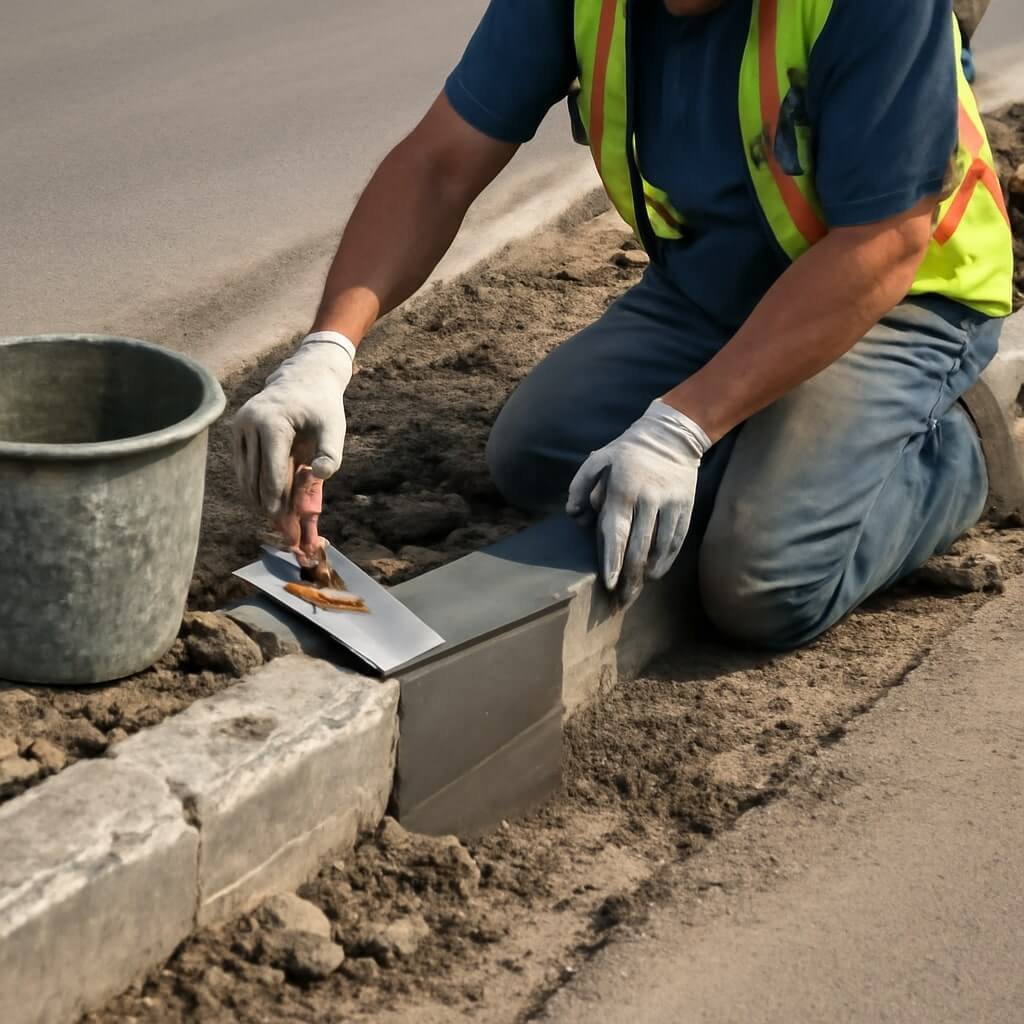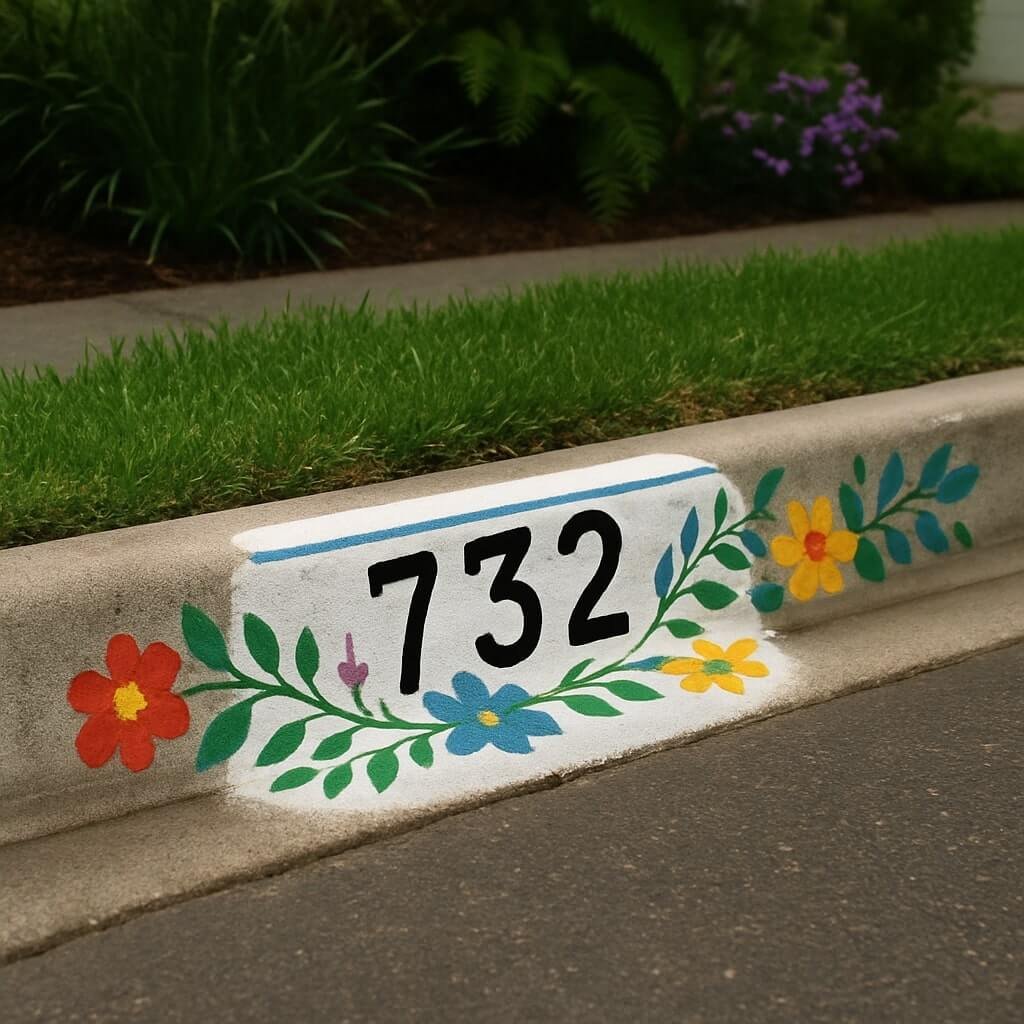Curb restoration is the professional process of repairing and renewing damaged curbs in residential, commercial, or public spaces. Over time, curbs can crack, chip, or deteriorate due to a variety of factors, including weather exposure, vehicular impacts, and natural wear and tear. Local experts offering reliable curb restoration bring their specialised knowledge and tools to restore these important urban features.
Why does curb restoration matter? Curbs do more than just define the edges of streets—they improve safety by guiding traffic, protecting pedestrians, and enhancing the overall curb appeal of neighbourhoods and business areas. Ignoring damaged curbs can lead to further infrastructure problems, safety hazards, and costly repairs down the road. By trusting local curb restoration experts, property owners ensure that their curbs remain functional, safe, and aesthetically pleasing.
Common Causes of Curb Damage

Understanding what causes curb damage helps in both prevention and selecting the right restoration method. The main culprits fall into three broad categories:
Weather and Environmental Factors
Freeze-thaw cycles, heavy rainfall, and intense sun exposure all contribute to curb deterioration. Water seeps into small cracks, freezes, and expands, causing the concrete to crack further. Prolonged sun exposure can cause surface weakening and fading.
Vehicle Impact and Accidents
Frequent contact with vehicles—be it from parking, turning, or accidents—can chip, crack, or dislodge curbs. Overweight vehicles and errant tires hitting curbs repeatedly accelerate this damage.
Wear and Tear Over Time
Simply put, time takes its toll. Even with no accidents or severe weather, curbs gradually degrade due to continuous exposure to elements and mechanical stresses, requiring periodic restoration.
Benefits of Hiring Local Experts for Curb Restoration
When it comes to curb restoration, local experts offering reliable service bring several advantages over generic contractors or DIY fixes.
Faster Response and Personalised Service
Local teams understand the unique environmental and traffic conditions of your area. They respond promptly and customise solutions tailored to your specific curb issues.
Cost-Effectiveness and Quality Assurance
Hiring local means lower travel costs and better pricing. Moreover, local experts are invested in their reputation within the community, ensuring top-quality workmanship that stands the test of time.
Step-by-Step Process of Reliable Curb Restoration
Local experts follow a systematic process that ensures durable and aesthetically pleasing results:
Initial Inspection and Damage Assessment
The first step is a thorough site inspection to identify the extent and type of damage. Experts assess cracks, chips, alignment issues, and structural integrity to create a tailored repair plan.
Material Selection and Preparation
Choosing the right materials—such as high-strength concrete mixes, polymer overlays, or sealants—is critical. Preparation involves cleaning the curb surface, removing loose debris, and prepping edges.
Repair Techniques and Tools
Depending on the damage, methods include patching cracks, resurfacing damaged areas, or complete section replacement. Tools range from grinders to trowels and specialised mixing equipment.
Final Finishing and Quality Checks
After repair, curbs are smoothed, edges shaped, and surfaces sealed to protect against future damage. Final inspections confirm adherence to quality standards.
How to Choose the Right Local Curb Restoration Experts

Selecting a trustworthy expert can feel overwhelming. Here are practical tips:
Checking Credentials and Reviews
Verify licenses, certifications, and insurance. Read customer reviews on local platforms to gauge reliability and workmanship quality.
Comparing Quotes and Services
Request multiple estimates detailing scope, timeline, and materials. Avoid choosing solely based on price; focus on value and professionalism.
Common Mistakes to Avoid During Curb Restoration
Avoid these pitfalls to ensure your curb restoration lasts:
- Using low-quality materials that degrade quickly
- Ignoring underlying structural damage
- Rushing the curing process, leading to weak repairs
- Not consulting local experts familiar with regional conditions
Maintenance Tips to Prolong the Life of Restored Curbs
Simple maintenance extends the life of your curbs:
- Regularly clean curbs to prevent debris buildup
- Seal cracks early before they widen
- Avoid heavy impacts by managing traffic flow
- Schedule periodic professional inspections
Cost Breakdown: What to Expect from Reliable Curb Restoration

Costs vary by curb length, damage severity, materials, and location. Typical pricing includes:
| Cost Component | Estimated Range |
|---|---|
| Inspection & Assessment | $50 – $150 |
| Material Costs | $3 – $10 per square foot |
| Labor | $40 – $75 per hour |
| Additional Services | Variable (e.g., sealing) |
Getting detailed quotes helps plan your budget effectively.
Environmental Considerations in Curb Restoration
Sustainability is increasingly important. Local experts often use:
- Eco-friendly concrete mixes with recycled content
- Low-VOC sealants and coatings
- Techniques minimising waste and emissions
Choosing green options protects both your property and the environment.
Case Studies: Successful Local Curb Restoration Projects
Case Study 1: A residential neighbourhood curb restored after severe winter damage. Using polymer-enhanced concrete, local experts reduced cracking by 60% compared to previous repairs.
Case Study 2: Commercial district curbs restored with quick-setting materials to minimise business disruption. The project was completed 2 days ahead of schedule with excellent customer feedback.
Frequently Asked Questions (FAQs)
How long does curb restoration usually take?
Can I restore curb myself?
Q3: Will curb restoration improve my property value?
How often should curbs be inspected?
Are there warranties for curb restoration services?
What materials are best for curb restoration?
Conclusion: Why Trust Local Experts for Your Curb Restoration
When you need curb restoration, turning to local experts offering reliable, experienced, and tailored services is the smartest choice. Their knowledge of local conditions, commitment to quality, and customer-focused approach guarantee durable, attractive, and safe curbs. Don’t wait for damage to worsen—contact local professionals to protect your property’s edges today.



